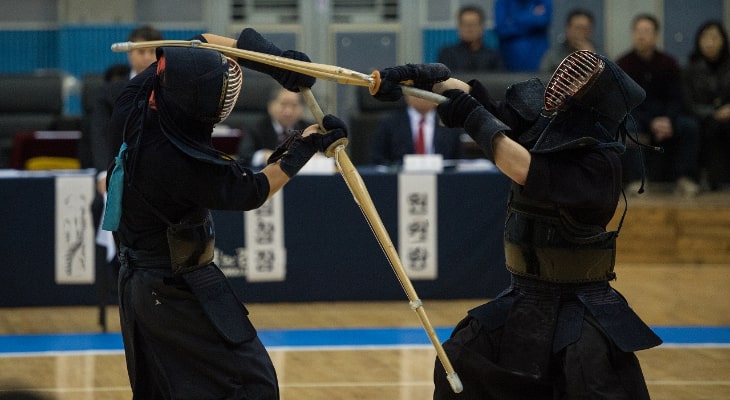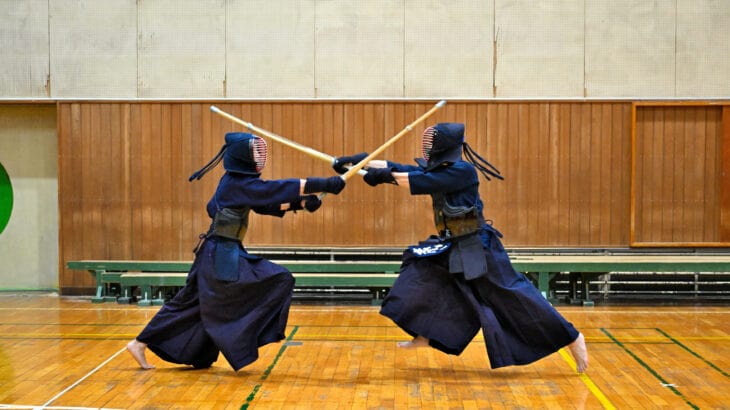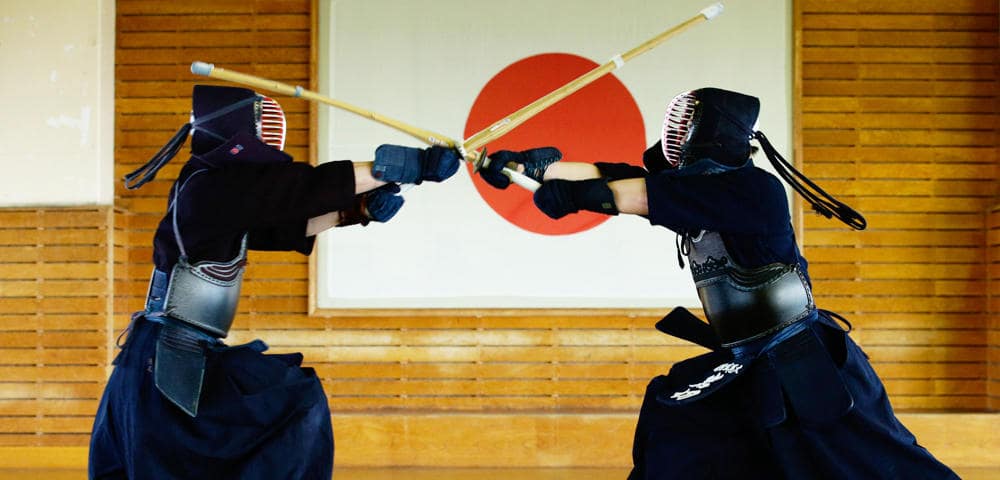
The 8th dan in Kendo is a highly respected dan that represents the fruits of years of practice and dedication.
In this article, we will explain in detail the examination criteria for Kendo 8th Dan, tips for preparation, strategies for success, and valuable advice from successful candidates themselves.
We hope this guide will be a useful resource for all swordsmen who aspire to this lofty goal in the path of Kendo.
The journey to become 8th Dan in Kendo is not just a journey to hone your skills, but also a journey of spiritual growth and self-actualization.
To all the swordsmen who aim to reach the heights of Kendo, we invite you to witness the beginning of this journey.
目次
- 1 What is Kendo 8th dan? – Meaning and importance of dan
- 2 Kendo 8th Dan Examination Standards – What is required?
- 3 Exam Preparation – Specific Strategies to Pass
- 4 How many 8th Dan Kendo players are there in Japan? Introducing the number of people
- 5 Challengers to Kendo 8th Dan – Interviews and experiences of successful candidates
- 6 Training and mental preparation – mental and physical requirements
- 7 Questions and Answers – details frequently asked questions and answers
- 8 Impact and Value of Kendo 8th Dan – Impact on Individuals and Communities
What is Kendo 8th dan? – Meaning and importance of dan
In Kendo, 8th Dan is a rank that requires extremely high technique and spirituality, and symbolizes the maturity and deep insight of a Kendo practitioner.
The title of 8th Dan is a recognition of years of dedication and training in the Kendo world.
Achieving this dan is a great honor for a kendo practitioner and often requires a lifetime of effort.
Kendo’s dan system comprehensively evaluates not only technique, but also behavior in the dojo, attitude in interpersonal relationships, and the dignity shown during judging.
The 8-dan examination goes beyond mere kata and match technique; what the judges are looking for is an assessment of the overall maturity and self-control of a kendo practitioner.
Therefore, Kendo 8th dan is considered to be a dan that goes beyond a mere technical level and requires deep spirituality and philosophical understanding.
8th Dan Kendo practitioners also play an important role in passing on their knowledge and skills to their successors.
They are responsible for passing on the spirit of Kendo to the next generation, and are expected to serve as role models for the dojo and the Kendo community as a whole.
In this way, 8th dan kendo practitioners have not only technical influence but also social influence, contributing to the development of the kendo world as a whole.
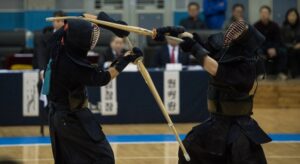
Kendo 8th Dan Examination Standards – What is required?
Kendo’s 8th Dan examination is known for its difficulty and rigor, and requires advanced technique, deep understanding, and excellent spirituality from the swordsmen taking the examination.
Judging takes place in a series of kata and match formats that closely resemble actual combat, and not only the swordsman’s technical proficiency, but also his responsiveness and judgment are rigorously evaluated.
Perfect execution of technique and form
Kendo Kata is an indication of how precisely and fluidly a swordsman can execute a technique.
In the 8th Dan examination, these forms are required to be displayed in near-perfect form.
In addition to technical accuracy, the beauty and spirit of the movements are also evaluated.
Overwhelming game power and tactics
During the judging, practical ability in Kendo competitions will also be tested.
A swordsman must be able to read the distance between himself and his opponent and make accurate moves at the right time.
Additionally, tactical knowledge is required, including the ability to predict the opponent’s movements and respond flexibly.
spiritual maturity and self-control
Kendo is a martial art that goes beyond mere physical technique and emphasizes spiritual growth.
The 8th Dan examination evaluates how calm and focused a swordsman can be, as well as whether he can maintain composure and dignity during a match.
A swordsman who challenges this rank must maintain excellent judgment and mental stability even under difficult circumstances.
Leadership and contribution to Kendo
When judging Kendo 8th Dan, not only technical ability but also contribution to the Kendo community is taken into consideration.
Qualifications as a teacher and dedication to the spread and development of Kendo will also be evaluated.
The ability to have an impact on the Kendo world as a whole is an important element required for this high rank.
In this way, the Kendo 8th Dan examination is conducted based on multifaceted and strict criteria, and is a comprehensive evaluation of the swordsman’s technique, spirituality, and social contribution.
A swordsman aiming for this rank must not only hone his technique, but also improve his way of living as a kendoist.
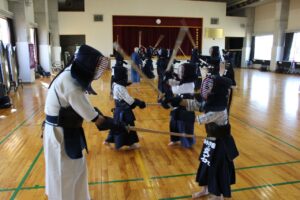
Exam Preparation – Specific Strategies to Pass
When aiming to pass the 8th Dan examination in Kendo, specific and strategic preparation is required that goes beyond mere daily practice.
Technical proficiency, psychological preparation, and physical strength are essential to passing this high rank.
Below, we will detail how to effectively prepare for the 8th Dan examination.
Strengthening technical practice
It requires perfect mastery of Kendo forms and basic techniques.
In daily practice, it is important to improve the precision of each kata movement.
You should also improve your reaction speed and accurate technique application during matches through practical training.
mental preparation
The mental pressure of the 8th Dan examination is enormous, so it is essential to cultivate psychological strength.
Incorporating meditation and breathing techniques can help you stay focused and calm during the examination.
It is also effective to build confidence by reflecting on successful experiences.
Strengthening physical strength
The examination takes a long time, so excellent physical strength is required.
It’s important to improve both your endurance and explosive power by combining regular aerobic exercise with strength training.
In particular, you should focus on strengthening your lower body and core to support the movements specific to Kendo.
Use of mock examinations
By conducting a mock examination in an environment similar to the actual examination, you can get used to the pressure of the actual examination.
It is important to use feedback from senior kendo players and instructors to clarify your weaknesses and identify areas for improvement.
Cooperation with instructors
By proactively seeking advice from experienced instructors and kendo practitioners who already hold 8th Dan, you can prepare more effectively for your examination.
Their specific points and advice based on their experience are extremely helpful in optimizing your own practice method.
Combining these strategies will allow you to prepare systematically and comprehensively for the Kendo 8th Dan Examination, greatly increasing your chances of passing.
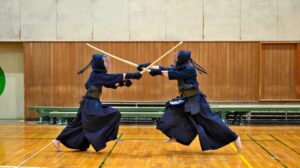
How many 8th Dan Kendo players are there in Japan? Introducing the number of people
Currently, there are over 700 8th Dan Kendo holders across Japan.
Kendo 8th Dan is a highly respected dan due to its high level of technique and spirituality, and according to the All Japan Kendo Federation, this number is extremely limited.
Obtaining the 8th Dan in Kendo is a great accomplishment for a Kendo practitioner and requires a lot of dedication and effort, which is why there are relatively few of them.
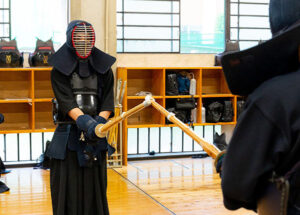
Challengers to Kendo 8th Dan – Interviews and experiences of successful candidates
Passing the 8th Dan in Kendo is a very difficult challenge that requires a lot of dedication and hard work.
Here, we will introduce a part of the journey through interviews with Kendo practitioners who have actually passed the 8th Dan level and their experiences.
Teacher Toshiro Yoneda’s challenges and learnings
Teacher Toshiro Yoneda shares the process of personal growth and success through many years of challenges and interactions with students.
He passed the exam on his ninth attempt, and although he faced many setbacks and questions along the way, he made new discoveries and deepened his self-understanding through practicing with the students, and was finally able to enjoy the joy of passing. I was able to do it ( Kendo era ) .
Yoshiaki Sugimori’s continuing passion
Yoshiaki Sugimori, a native of Shizuoka Prefecture, obtained his 8th Dan qualification at the age of 68.
I started Kendo when I was in junior high school, and since then I have continued to pursue my goal of reaching 8th dan for a long time.
His experience teaches us that the appeal of Kendo is not just the technique, but also the connections with people and the growth of the mind ( AT-S ) .
These successful applicants have not only honed their skills, but have also made great strides in spiritual maturity and building relationships.
Their stories make it clear that the Kendo high-level exam is more than just a technical examination, it is an opportunity to encourage comprehensive growth as a person.
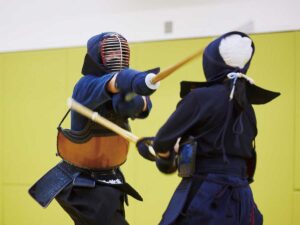
Training and mental preparation – mental and physical requirements
Training and mental preparation for the Kendo 8th Dan examination requires not only technical mastery, but also high demands on the mental and physical aspects.
In the practice of Kendo, physical preparation and mental training are closely linked, and their balance is the key to success.
physical training
When training in Kendo, it is important to start with repetition of basic techniques and gradually increase speed and accuracy. Specifically, the following training is recommended:
- Mastering basic techniques : Thoroughly practice basic strokes and footwork during daily practice, aiming to automate techniques.
- Strengthening : Incorporate running, sprinting, and weight training to build endurance and explosive power.
- Improving flexibility and reflexes : To accommodate the unique movements of Kendo, we will perform stretches to increase flexibility and special drills to train reflexes.
mental preparation
Mental preparation is essential to withstand the pressure of judging and perform at your best.
- Meditation and breathing techniques : Meditation and deep breathing on a daily basis will help you stay calm and focus.
- Mental training : Use image training to imagine the judging situation in advance and prepare to perform your skills with confidence.
- Mental training : Practice under pressure similar to the actual examination to improve your mental tolerance.
In this way, physical training and mental strengthening are closely linked in preparing for the Kendo 8th Dan examination.
Aiming for holistic growth as a kendo practitioner through these preparations will ultimately lead to passing the exam.
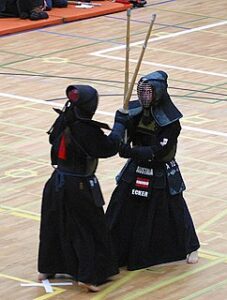
Questions and Answers – details frequently asked questions and answers

Impact and Value of Kendo 8th Dan – Impact on Individuals and Communities
Achieving 8th Dan in Kendo has a profound impact on personal growth and contribution to the community.
The title of 8th dan symbolizes years of rigorous training and mental maturity, and its achievement brings confidence and respect to the individual.
Kendo 8th Dan swordsmen also often serve as educators and leaders, contributing to the guidance of local Kendo communities.
It is hoped that this will teach the younger generation of swordsmen not only techniques, but also morals and etiquette.
The spirit of Kendo is based on the idea that “Kendo is the path of life,” and learning from swordsmen who have achieved this high rank not only improves your technique, but also helps you grow as a person.
The influence of 8th Dan Kendo can positively impact individual dojos and the community as a whole, ensuring that the tradition of Kendo and its philosophy is passed on to the next generation.
